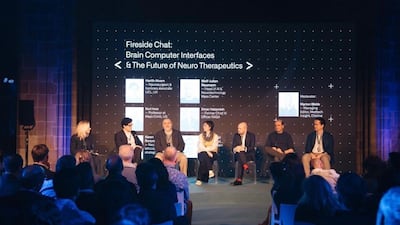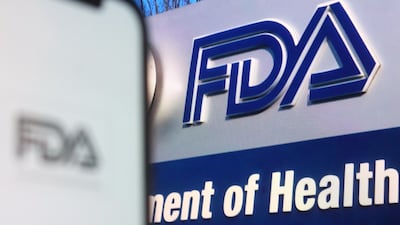Regulation
With EU MDR/IVDR review proposals out, UK MHRA progress on a premarket regulation and, up ahead, a prospective consultation on accepting the CE marking indefinitely, now is a good time to assess EU-UK regulatory positions for the benefit of UK industry, says ABHI director Steve Lee.
The US FDA has published its annual international harmonization assessment for fiscal 2025, which reports on the device center’s progress in aligning medical device regulations with global standards to improve patient access to safe, innovative technologies.
The US FDA’s Quality Management System Regulation has officially replaced the decades-old Quality Management System. The new system links with international standards for regulating medical device systems.
Medtech Insight was invited to moderate a panel discussion with leading experts in neuroscience and AI during INBRAIN’s five-year anniversary in Barcelona, Spain. Panelists discussed the promises, perils in BCI development, neuroethics and outlook.
The US FDA device center’s new annual report found notable successes in 2025 that included continuing to meet user fee goals as well as making progress on patient safety, innovation, and regulatory science.
If medtech regulation is to work for patients, industry and society, Europe must move from political positioning to evidence-driven policymaking. It is time to avoid repeating the self-destructive cycle.
AI promises to be the much-needed solution to the now overly complex field of EU medtech regulatory affairs. Will every stakeholder start using solutions such as Raiana?
Chatbots can churn out valuable information to patients and give much needed assistance to healthcare personnel. But their mistakes can lead to significant patient harm, which is why ECRI ranks their misuse as the top health technology hazard for 2026.
The European Commission’s proposal does not envisage a single centralized medtech agency, but instead sets out a targeted redistribution of tasks that could strengthen the existing framework. Professor Tom Melvin told Medtech Insight how.
Could the understaffing that has weighted down EU’s medtech regulators become a thing of the past?
European Commission-sponsored study published in December reveals the full impact of soaring compliance costs, shrinking device portfolios and innovation shifting abroad.
The UK MHRA will soon consult on allowing CE-marked devices indefinite access to the Great Britain market. Meanwhile, the EU has at last moved to make the MDR/IVDR more user friendly. Taylor Wessing partner Alison Dennis reflects on how these events could influence evolving UK medtech legislation.
As medtech moves toward 2026, experts highlight increased regulatory complexities, particularly around AI, cybersecurity, and device user fees. Urgent regulatory updates are needed to keep pace with rapid technology changes while ensuring patient safety and operational efficiency.
Proposal Gives Unrealistic Timelines And Reflects Poor Grasp Of Notified Body Realities
The FDA and medtech industry held multiple meetings last month to continue talks for the next round of medical device user fee amendments. Stakeholder priorities included resource planning, fee structure reforms, IT enhancements, international harmonization, and real-world evidence.
There are many unworkable suggestions in the European Commission’s proposed overhaul of how notified bodies operate, TEAM-NB’s document states
As 2025 turns to 2026, Swiss medtechs are anxiously looking to the future on three major fronts, according to Daniel Delfosse, head of regulation and innovation at the national industry association, Swiss Medtech.
MedTech Europe’s Petra Zoellner discusses industry's response to EU regulatory proposals aimed at improving notified body operations, transparency, and cost predictability, ultimately fostering innovation in medical technology.
In this second of a three-part series, Medtech Insight spoke with three neuroethicists who raised concerns about privacy, patient safeguards and the need for comprehensive guidelines. These issues are becoming more pressing as BCI companies get ready to commercialize their products.
The US FDA has made incorporating real-world evidence into medical device decisions a lot easier. The agency now says it will accept RWE without requiring it to contain identifiable individual patient data, making more of it available. Many stakeholders welcomed the change.




















